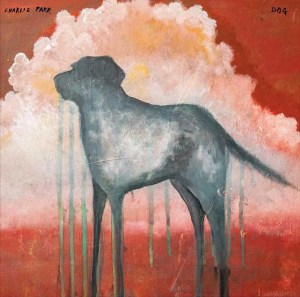Charlie Parr’s Guitars Bring Lightness to a Heavy Album on ‘Dog’
The first two times Charlie Parr tried to record these songs solo he was too depressed to play a note. He tried a third time, hit another bottom, and gave up again. But the songs wouldn’t let him go, so Parr enlisted some friends—Mikkel Beckmen (percussion), Liz Draper (bass), Dave Hundrieser (harmonica), and Jeff Mitchell (guitar)—to join him in the studio. On this fourth try, sitting in a circle and playing these songs for the first time, they finally laid these tracks down.

It’s a small miracle the songs made it this far, and now that they have, it’s an incredible gift to the rest of us. Dog is a triumph of Parr’s art, grappling with mortality, mental illness, desperation, and the urge to stay inside all day long. Colored by his work with homeless men and women, it’s a hard-won, unsparingly autobiographical story of getting by, and for all the heaviness of its themes, the album is surprisingly lively, upbeat, and full of momentum.
ADVERTISEMENT
Parr sings in a worn-out, meandering tenor, writing lines like “I want my son to have this when I’m dead” and “Ain’t somebody gonna tell me what I’m doing here? Ain’t somebody gonna tell me where I’m going?” In one of the strongest songs, he sings from his dog’s point of view, arguing that “a soul is a soul is a soul is a soul,” and in another, he provides every reason in the world why he’s not getting out of bed. In striking contrast to the lyrics, he picks with just a thumb-and-forefinger, which lends these songs a Piedmont lightness, a drive, and springiness. Given the depth of Parr’s depression while he was writing these songs, the album isn’t what you’d expect at all: The arrangements are simple, spare, lonely, but they’re always in motion, with short, country-blues slide phrases that come back every few bars, punctuated by that steady bounce of thumb, forefinger, thumb, forefinger.
His old-school roots run deep, stretching from Mance Lipscomb to Doc Boggs, Rev. Gary Davis, Lightnin’ Hopkins, Tommy Johnson, and Spider John Koerner. But his sound—nearly solo, with friends playing so lightly you have to really listen to hear—is perfectly contemporary, recorded with a laconic, soft-spoken Minnesota insistence. Approaching 50 years old, and with 13 albums already behind him, Parr keeps sounding more and more like himself, and whether he’s playing 12-string, National resonator, or clawhammer banjo, these songs quietly demand to be heard.

This article originally appeared in the December 2017 issue of Acoustic Guitar magazine.





